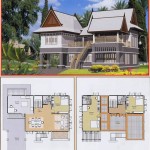Essential Aspects of Building Construction Planning and Scheduling
Building construction projects are complex undertakings that involve the coordination of multiple tasks and resources. Effective planning and scheduling are essential for ensuring that projects are completed on time, within budget, and to the required quality standards.
The planning phase of a construction project typically begins with the development of a project charter, which defines the project's scope, objectives, and constraints. This is followed by the creation of a project schedule, which outlines the sequence of activities that need to be completed and the estimated time required for each activity.
The scheduling process involves identifying all of the tasks that need to be completed, estimating the duration of each task, and establishing the dependencies between tasks. This information is then used to create a project network, which is a graphical representation of the project schedule.
Once the project schedule has been developed, it can be used to track the progress of the project and identify potential delays. The schedule can also be used to make adjustments to the project plan as needed, such as adding resources or extending deadlines.
In addition to planning and scheduling, there are a number of other essential aspects of building construction management, including:
- Cost estimating: The process of estimating the cost of a construction project.
- Project management: The process of overseeing and coordinating the execution of a construction project.
- Quality control: The process of ensuring that a construction project meets the required quality standards.
- Safety management: The process of ensuring that a construction project is carried out in a safe manner.
The successful completion of a construction project requires the effective management of all of these aspects. By following a systematic approach to planning and scheduling, construction managers can increase the likelihood of completing projects on time, within budget, and to the required quality standards.
Additional Tips for Effective Construction Planning and Scheduling
In addition to the essential aspects of construction planning and scheduling discussed above, there are a number of additional tips that can help construction managers improve their effectiveness:
- Use a project management software program: Project management software programs can help construction managers create and track project schedules, manage resources, and communicate with project stakeholders.
- Involve all stakeholders in the planning process: Getting input from all of the stakeholders involved in a construction project can help to identify potential problems and develop a more realistic schedule.
- Build in some contingency time: It's always a good idea to build in some contingency time into the project schedule to account for unexpected delays.
- Be flexible: The construction process is often subject to unforeseen circumstances, so it's important to be flexible and adapt the project plan as needed.
- Monitor the project closely: Regular monitoring of the project schedule and progress is essential for identifying potential problems and taking corrective action.
By following these tips, construction managers can increase the likelihood of completing projects on time, within budget, and to the required quality standards.

Planning Scheduling In Construction Management The Constructor

Project Management For Construction Planning

Project Management For Construction Planning

Learn Construction Planning Scheduling Course

Improve Your Construction Project Scheduling Digital Builder

Construction Planning And Scheduling A Guide Letsbuild

Project Management For Construction Planning

Project Planning And Scheduling Diffe Benefits Stages

How To Prepare A Construction Schedule Smartsheet

How To Build A Construction Schedule With Ms Project








